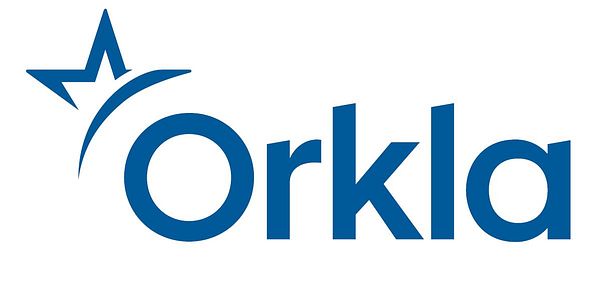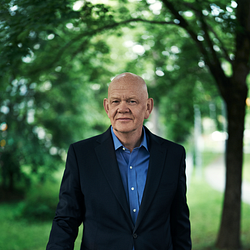Press release -
How Orkla contributes to sustainable development
Orkla’s Annual and Sustainability Report for 2020 has now been published.
2020 was impacted by the coronavirus pandemic. As a manufacturer of foods, cleaning products and personal hygiene articles, Orkla was defined as a company of critical importance to society.
“That is a responsibility that we have taken with the utmost seriousness,” emphasises Orkla President and CEO Jaan Ivar Semlitsch.
It is clearly evident from Orkla’s Annual and Sustainability Report that 2020 was a challenging year in terms of contingency preparedness for the Group – with its 105 factories in 20 countries, and over 18 000 employees.
“Our primary priority all along has been to take care of our employees and prevent infection. Second to that was to ensure the good flow of goods in all markets,” Mr Semlitsch says.
Good progress in sustainability work
Despite the pandemic, Orkla made good progress in its sustainability work in 2020. Assertive focus on plant-based food, “better-for-you” products and new packaging solutions have made Orkla’s product portfolio more sustainable.
“Offering products that promote more sustainable consumption is Orkla’s most important contribution to sustainable development. As a manufacturer of food and other consumer goods, the United Nations’ Sustainable Development Goal 12 – responsible consumption and production – forms the very core of our efforts,” Mr Semlitsch points out.
Cutting greenhouse gas emissions
Orkla has cut the greenhouse gas emissions from its own operations by 62 per cent from 2014 to 2020. A total of 47 per cent of its energy is now from renewable sources. Orkla is therefore well on its way to meeting its targets of a 63 per cent reduction in greenhouse gas emissions by 2025 and 77 per cent by 2040.
Orkla’s targets have been validated by the Science Based Targets Initiative and entail a reduction in greenhouse gas emissions in line with the Paris Agreement’s 1.5˚C target.
“Reducing climate emissions is one of our most important environmental tasks. There is a strong commitment in Orkla to achieving this objective,” relates Mr Semlitsch.
In 2020, Orkla was rated one of the world’s best listed companies for climate leadership by the global not-for-profit environmental organisation CDP. Orkla was awarded the highest score, A, placing it among the 270 best among over 9600 companies that reported.
Assertive focus on plant-based food
More and more people want to reduce their climate footprint and eat more plant-based food. This is a key priority area for Orkla.
“Our goal is to reach out to everyone with plant-based food, not just to vegans and vegetarians,” Mr Semlitsch says.
The plant-based brands NATURLI’®, Anamma, Felix, Beauvais Veggie og Lecora Green Line had total turnover of NOK 869 million in 2020 and growth of over 20 per cent from 2019 to 2020.
Packaging as part of a circular economy
In 2020, Orkla companies continued their efforts to optimise packaging, design packaging to facilitate recycling and develop new packaging solutions based on recyclable, recycled or renewable materials.
Orkla has strengthened its collaboration with key suppliers, centres of excellence, organisations and other companies on finding good, innovative solutions.
The result for 2020 is that 95 per cent of Orkla’s packaging was recyclable and 47 per cent of packaging was wholly or partly based on recycled materials.
Orkla’s 2025 target is 100 per cent and 75 per cent, respectively. Orkla will come even closer to meeting this target in 2021.
“We work every day to develop more sustainable packaging solutions. It’s important to involve suppliers, customers, authorities and research institutions in this process – and we are making good progress,” Mr Semlitsch says.
Products that promote a healthy lifestyle
Since 2015, Orkla has reduced the content of saturated fat in its products by 14 per cent. Consumption of sugar and salt has been reduced by 9 and 6.5 per cent, respectively.
Sugar and salt were again reduced significantly in Orkla products in 2020. To be exact: 2234 tonnes less sugar and 168 tonnes less salt.
Measuring sustainable growth
Six out of ten consumers in the Nordics and Baltics try to choose products that they perceive as being sustainable, according to Orkla’s Sustainability Barometer for 2020.
Orkla has drawn up criteria for what characterises sustainable food and grocery products, and in 2019 the companies began to classify their products according to the new criteria. This work continued in 2020.
The estimated share of Orkla’s turnover generated by products defined as “most sustainable” was 19 per cent in 2020. This is the same level as in 2019, but Orkla adjusted the criteria in 2020, making them more stringent. In the years to come, Orkla companies will make active use of the new criteria in their innovation and improvement work.
Related links
Topics
Categories
Orkla is a leading supplier of branded consumer goods and concept solutions to the consumer, out-of-home and bakery markets in the Nordics, Baltics and selected markets in Central Europe and India. Orkla is listed on the Oslo Stock Exchange and its headquarters is in Oslo. In 2018, the Group had a turnover of NOK 41 billion, and approximately 18,500 employees as of 31 December 2018.



